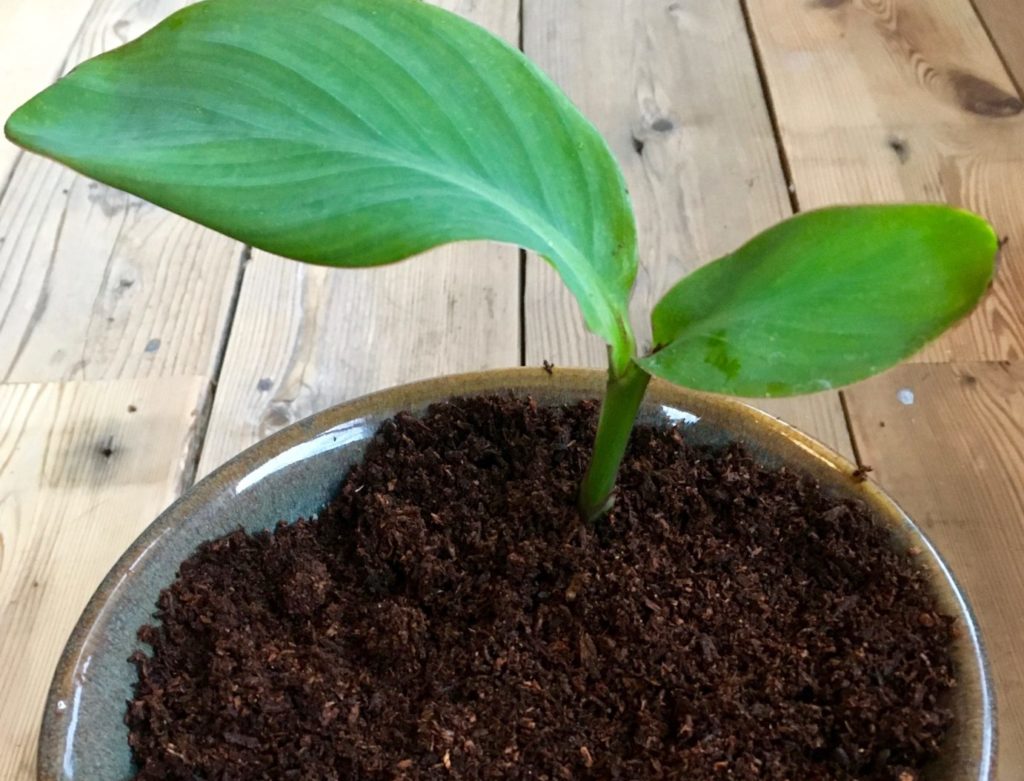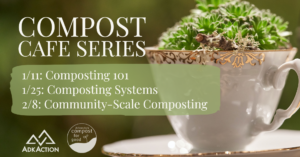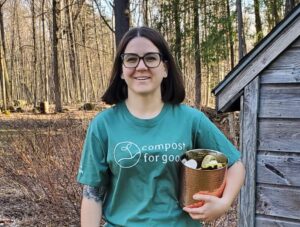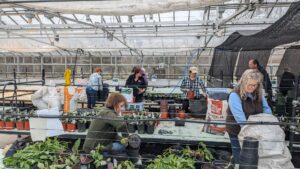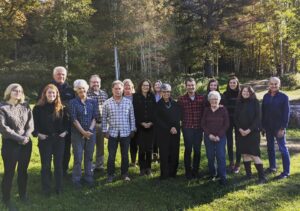by John Culpepper and Katie Culpepper, Compost for Good Team
At the heart of the Compost for Good Project is the desire to keep valuable nutrients in our communities by reimagining our organic waste streams. We are heartened by the growing interest in food scrap composting methods from backyard piles to community-scale systems. While we remain passionate about the work of upcycling food waste, we have even farther-reaching goals. In order to bolster the resilience of our soils and our communities, we are continually looking for new ways to capture more resources and keep them close to home.
Thanks to a grant from the Cloudsplitter Foundation, we are broadening our work with organic waste, and have been gaining significant experience with the composting of human urine. Through a very simple technique, we have turned over 4,000 pounds of human urine into a finished fertilizer and soil amendment. In this process, we capture nutrients that were being flushed away and create life-giving compost that can heal depleted soils. Our method is safe and effective, producing a compost that the Penn State soil testing facility found to have comparable characteristics to a store bought, bagged compost.
The process is simple: we add urine, water, and a carbon source together, in just the right ratios, to produce an environment where the nutrients in the urine feed microbes to break down the carbon source, stabilizing the nutrients. During the composting process, the microbes heat up the material to over 140° F. The result is a beautiful, finished compost that smells just like a healthy forest soil. This is a simple, low cost, and safe way to make compost, that also benefits the environment.
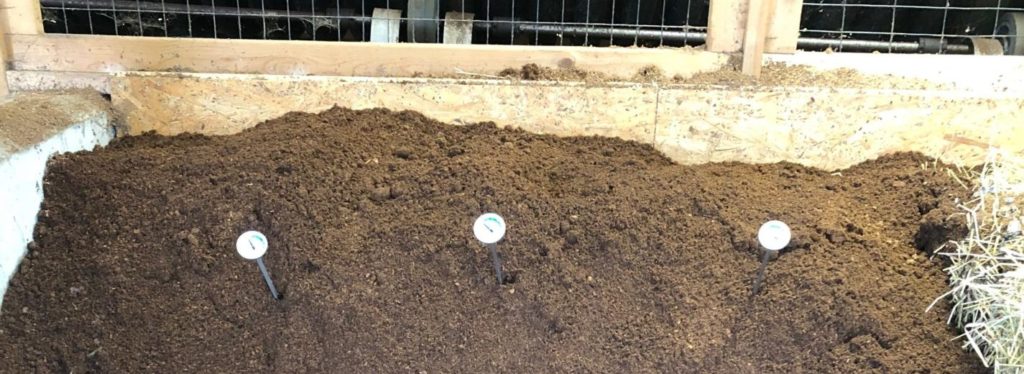
As it is handled now, human urine puts increasingly larger demands on wastewater treatment plants and has the potential to create environmental problems downstream. Imagine if instead urine was turned into a pathogen-free compost that can be used on any soil in need of additional fertility and organic matter. According to The Rich Earth Institute in Brattleboro, Vermont, urine from one person for a year contains enough nutrients to grow 320 pounds of wheat. When urine is processed through wastewater treatment plants and then released into our rivers and lakes, we can no longer recapture these nutrients for agricultural purposes.
Through this work, we participated in The Rich Earth Institute’s Urine Reclamation Summit where we met hundreds of researchers, educators, legislators, and entrepreneurs from around the world. Those who presented at the Summit (including Compost for Good!) recognize the immense benefits of “pee-cycling” and are finding innovative solutions to do just that, from urine-based building blocks in South Africa to urine-fertilized gardens in France. This substantial work happening across the globe is changing the narrative of what “waste” really means.
As our urine composting research continues, we are empowered by the potential of our communities to create change in the Adirondacks, turning problems into solutions—wastes into resources. Reimagining our waste streams will strengthen our economic and environmental resilience by keeping nutrients local, creating composting jobs, and building the health of our soils.
Compost Café
AdkAction’s Compost for Good Project is hosting a series of Compost Café chats this winter. Join John Culpepper and Katie Culpepper on Zoom to discuss any questions or ideas that you have about composting. We’ll be focusing on different topics each session, but all composting questions are welcome and anyone can attend.


